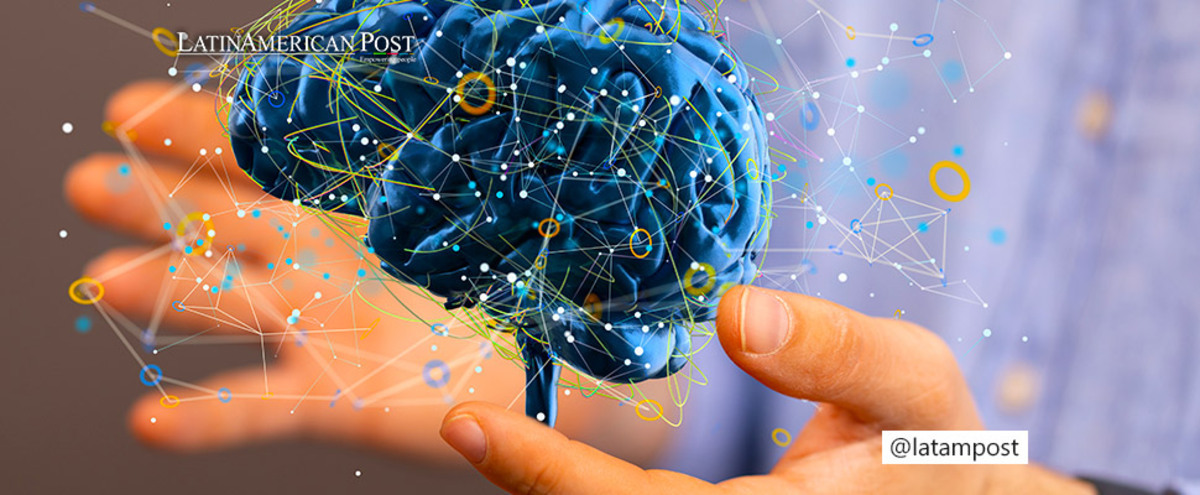Overcoming Hurdles: The State of AI in Latin America
Artificial intelligence (AI) is rapidly reshaping the world, but skepticism towards this transformative technology persists in Latin America. Access barriers, job insecurity, and concerns about data privacy hinder AI's growth. Alejandro Anderlic of Salesforce highlights these challenges and underscores the need for "ethical AI".

Photo: Adobe Stock/vegefox.com
The Latin American Post Staff
Listen to this article
Leer en español: Superando obstáculos: el estado de la IA en América Latina
Challenges to AI Adoption in the Region
As Latin America grapples with the Fourth Industrial Revolution, the region's journey with AI raises questions about inclusivity and its potential to bridge social disparities.
The rapid advancements in artificial intelligence (AI) and its application across various domains are swiftly reshaping society. However, in Latin America, a significant level of skepticism exists toward AI, according to Alejandro Anderlic, Director of Government Affairs and Public Policy at the technological company Salesforce.
One of the primary obstacles to AI adoption in the region is the limited accessibility to this technology. In addition, the fear of job displacement among employees and, most notably, a pervasive distrust in sharing personal data hinder its development.
In an interview with EFE, Anderlic highlighted the prevalent skepticism in the region, with 76.8% of people believing that sharing their data entails more risks than benefits. Another concerning factor is the relatively low level of cybersecurity preparedness.
Anderlic acknowledged that while AI holds tremendous potential, it also presents risks. Thus, Salesforce advocates for "ethical AI," focusing on this technology's responsible and beneficial use. He emphasized that AI is neither inherently good nor bad; its impact depends on how it is employed.
Since 2018, Salesforce has maintained an "Office of Ethical and Humane Use" dedicated to deploying reliable, responsible, inclusive, and transparent AI. This office is held accountable through an Ethical Use Advisory Board.
Advocating for Ethical AI
Anderlic underscored the robust nature of AI as a tool to assist people by proposing ideas and content that individuals can develop. In business, AI has extensive potential, including scheduling meetings, organizing files, managing administrative tasks, writing code, designing products, creating content, and devising marketing strategies. AI can also enhance customer service through chatbots and expedite scientific discoveries, automating tasks to boost team productivity and efficiency.
A fundamental principle for Salesforce is that "customer data is not our product." The company ensures that data belongs to its customers, emphasizing the importance of respecting privacy, security, and ownership. This is especially crucial in generative AI, which involves content generation without relinquishing control over shared information.
We find ourselves amid the Fourth Industrial Revolution, characterized by the profound impact of AI, machine learning, cloud computing, data analytics, and the Internet of Things (IoT) on our daily lives and the world of work. This revolution stands out for three key factors: the astonishing speed of change, its far-reaching impact, and its transformative effects on interconnected systems in society, spanning politics, economics, and the operations of countries.
Also read: Artificial Intelligence And Health: Saving Tool Or Double-Edged Sword?
Democratizing Technology in Latin America
When questioned whether AI could exacerbate social disparities, Anderlic pointed out the importance of addressing this issue in Latin America. Salesforce considers the democratization of technology as a fundamental goal, ensuring everyone has access to technology and its benefits.
With its human capital and a wealth of innovative ideas, Latin America holds immense potential to bolster the region's AI landscape. The drive towards technology democratization can unleash this potential, bridging gaps and enabling the region to harness the benefits of AI for inclusive growth and development.
As the world embraces AI and its transformative potential, Latin America is at a pivotal juncture, poised to play a significant role in shaping the future of AI while addressing the challenges of adoption and ethics.




